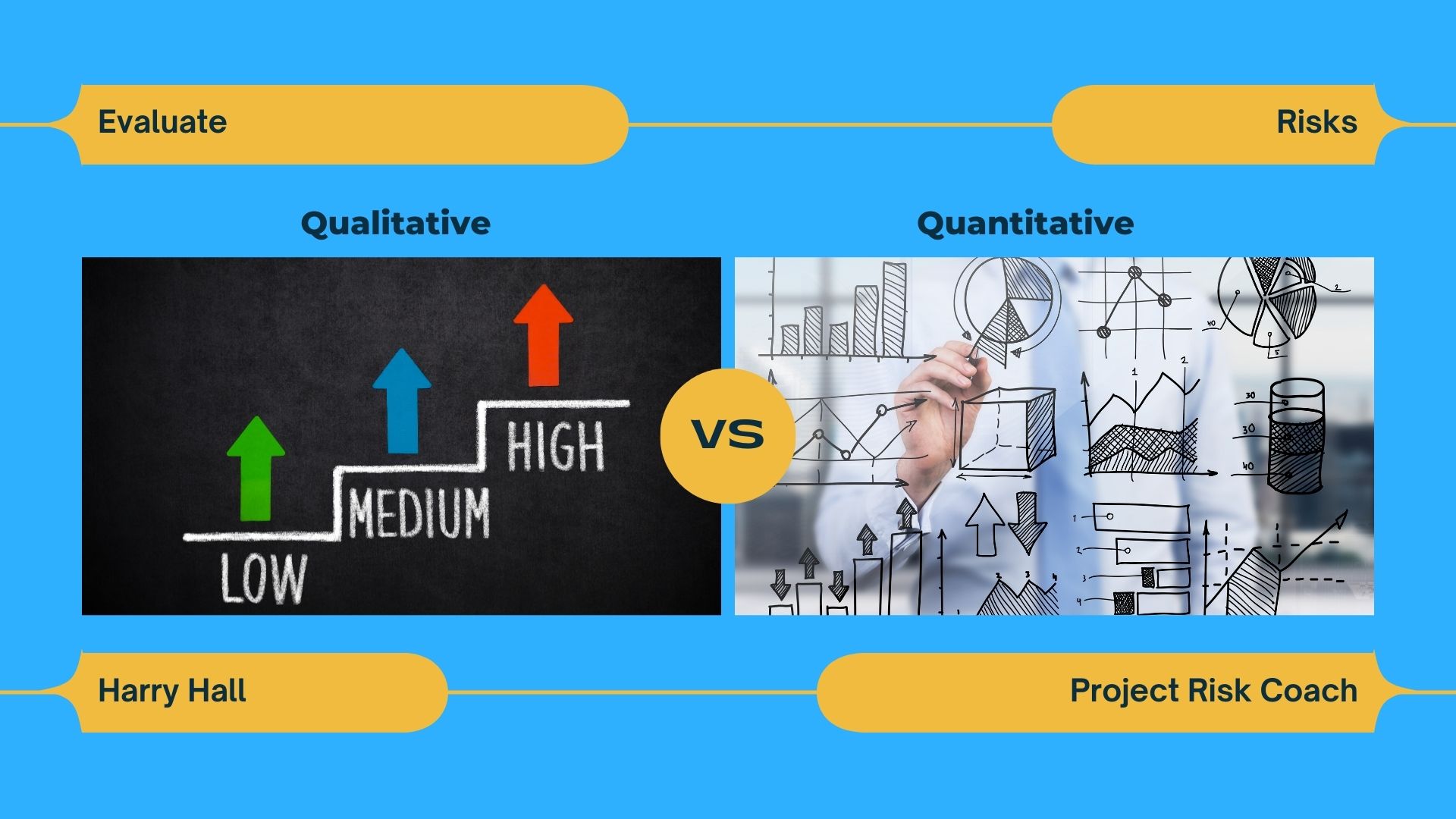In this blog post, we will explore the differences between qualitative and quantitative risk analysis. What is each? And when should you perform these processes? Let's dive in.

Qualitative Risk Analysis
Once you've identified your risks, it's important to evaluate your risks. Why? To establish the priorities of the risks. Which risks need a response?
Qualitative risk analysis is a quick way of determining the significance of your risks. One of the most common ways to perform qualitative risk analysis is the Probability / Impact Assessment. For example, we might evaluate the risk probability and impact on a scale of 1 to 5. If the probability was ranked as 4 and the impact was ranked as 3, we would multiply probability times the impact, giving us a risk score of 12.
Qualitative Risk Analysis. The consideration of a range of characteristics such as probability of occurrence, degree of impact on the objectives, manageability, timing of possible impacts, relationships with other risks, and common causes or effects.
- The Standard of Risk Management for Portfolios, Programs, and Projects -
More...
Quantitative Risk Analysis
So, what is quantitative risk analysis? This method is a numeric evaluation. For example, we might say that a risk has a 20% probability of occurring and if the risk occurs, there would be a $10,000 impact. Using the expected monetary value (EMV) method, we could multiply the probability times the impact, resulting in a $2,000 risk exposure.
Quantitative Risk Analysis. The combined effect of identified risks on the desired outcome.
- The Standard of Risk Management for Portfolios, Programs, and Projects -
Qualitative vs. Quantitative Risk Analysis
What's the difference?
Qualitative Risk Analysis
Quantitative Risk Analysis
Qualitative and Quantitative Risk Analysis: What's the Difference?
Conclusion:
When planning your programs and projects, be sure to develop a project risk management plan. And in this plan, specify how you will perform qualitative risks analysis. Furthermore, decide whether you will perform quantitative risk analysis. Is it worthwhile? Do the benefits outweigh the costs? If so, which tools and techniques will you and your team use?
